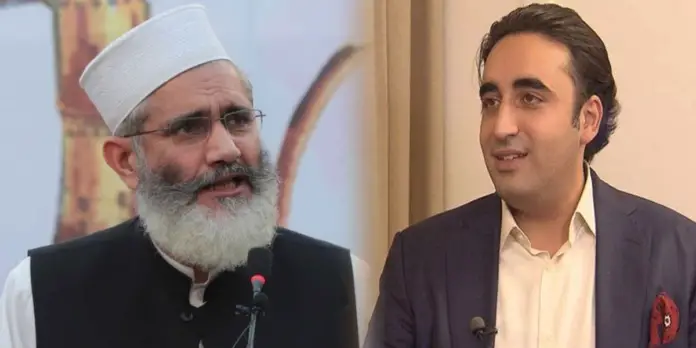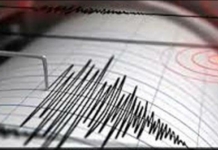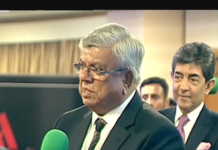Pakistan People’s Party (PPP) Central Punjab President Raja Pervez Ashraf on Monday visited Jamaat-e-Islami (JI) headquarters in Mansoorah, Lahore, to seek the party’s support for NA-133 by-polls scheduled to be held on December 5 in Lahore.
Former prime minister Ashraf met JI acting Ameer Liaqat Baloch and other leaders and requested the JI to back the PPP candidate, Aslam Gill, in the by-polls, since no candidate of the JI was contesting the elections. Gill was also a part of the PPP delegation that visited JI’s leadership.
The elections in the Lahore constituency are being held due to the death of Pakistan Muslim League-Nawaz (PML-N) member of National Assembly (MNA) Pervaiz Malik. The polls have emerged as a one-on-one contest between the PPP and the N-league since Pakistan Tehreek-i-Insaf (PTI) candidate Jamshed Iqbal Cheema’s candidature was rejected by the Election Commission of Pakistan (ECP) on technical grounds.
The PPP has already won the support of some religious parties including the Pakistan Awami Tehreek of Dr. Tahirul Qadri and Shia organization, Majlis-e-Wahdatul-Muslimeen, for the polls.
PML-N has fielded late Malik’s wife, Shaista Pervaiz, for the constituency, which has been considered as the stronghold of the main opposition party of Punjab and the centre.
Talking to journalists, Ashraf said the two sides discussed the prevailing political situation and that the JI sought time for its decision on NA-133. He said the PPP and JI had developed contacts since long, adding that PPP Chairman Bilawal Bhutto also visited Mansoorah and met JI Ameer Sirajul Haq a few months ago.
Baloch said that JI would make the decision on PPP’s request after consultation. He criticized the amendments in Election Act 2017, saying the electronic voting machine (EVM) could not guarantee free and fair elections. He said a strong election commission and consultation among political parties were needed for free polls.







